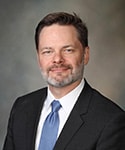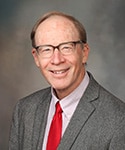Department and Faculty
The Department of Neurology at Mayo Clinic in Scottsdale, Arizona, is a highly integrated, collaborative department of 20 neurologists who specialize in the diagnosis, treatment, and research of conditions and diseases affecting the nervous system. Close collaboration with specialists in other Mayo Clinic departments and divisions offers Mayo Clinic patients comprehensive care based on the traditional Mayo Clinic Model of Care.
Within the department, the Multiple Sclerosis Center provides a comprehensive evaluation and treatment plan for MS patients. In addition, the MS Center strives to provide an opportunity for the patient to address their needs with each specialty service and leave with a treatment plan to optimize their health.
Patients receive a focused assessment by the MS Center in a timely and efficient manner. The patient meets each team member for an individual evaluation and examination. Team members include neurologists, nurses, physical and occupational therapists, urologists, and social workers. A representative from the National Multiple Sclerosis Society is available to meet patients and provide referrals to community resources.
The National Multiple Sclerosis Society has recognized Mayo Clinic in Scottsdale's Multiple Sclerosis Center as a designated Chapter-affiliated center focused on the diagnosis, evaluation, and treatment of patients with multiple sclerosis and other demyelinating diseases.
Meet the faculty
|
|
Dean Wingerchuk, M.D.Program Director Medical school: University of Saskatchewan Interests:
|
|
|
Jonathan Carter, M.D.Associate Professor of Neurology Medical school: Mayo Clinic Alix School of Medicine Interests:
|
Advisers
You will be assigned a faculty advisor who can provide comprehensive educational advice and personal support.
Visiting professors
Many prominent professors visit Mayo Clinic each year. They present their work during morning and late afternoon lectures. Residents and fellows are encouraged to take full advantage of these opportunities to interact with experts from other academic centers and are relieved from clinical assignments to do so.

